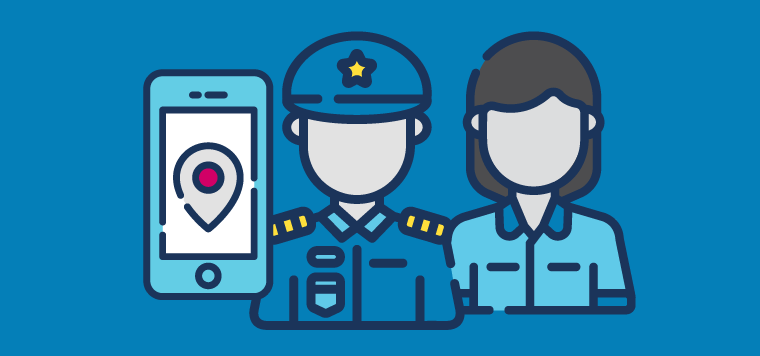Mobility is transforming the delivery of cleaning and security services
And now is the time to implement a mobile solution to manage your distributed workforce.
Mobile devices have empowered field service workers for more than a decade. But over the last few years, the pace of mobile adoption is suddenly increasing, and the cleaning and security companies that are leading the way are reaping the rewards.
So, what’s driving a sudden increase in the adoption of mobile phones? Cleaners and guards are becoming more comfortable using mobile apps as part of their work. Buyers of cleaning and security services are demanding detailed and real-time reporting from their providers, and companies across both industries realise that the benefits of implementing mobile solutions far outweigh the costs.
How are mobile devices used in the delivery of cleaning and security services?
The way value is derived usually varies depending on the type of contract. For instance, there is a strong focus on risk minimisation in retail contracts through real-time tracking of guard tours, cleaning rotations and reporting of slip hazards. Small sensors called Bluetooth beacons work in tandem with a mobile application to monitor when facilities are visited by a cleaner or guard and automatically raise alerts if rotations are missed. For example, suppose a cleaner identifies a hazard such as a spill. In that case, the cleaner can use the mobile application to log a record and include photos that demonstrate the risk has been eliminated. The data generated from these interactions plays a vital role in reducing public liability claims costs typical in large retail contracts.
In large, distributed contracts such as retail banking or big-box retail, knowing the cleaner or guard showed up and completed the required work is critical. In this case, a virtual GPS perimeter, known as a geo-fence, can be set around each property with an associated service schedule. If the cleaner or guard doesn’t start a shift on time, an exception is automatically raised and a manager is notified. When the employee does show up, the mobile application automatically presents the tasks that need to be completed based on the time and location. This data provides regional managers with the confidence that services have been delivered according to scope and allows them to manage contracts by exception. It also streamlines payroll administration by automating start and finish time collection.
Given the tremendous benefits they offer, why aren’t all companies rushing to deploy mobile devices to their teams?
The most common objections we hear include it costs too much, employees don’t know how to use the apps, we can’t expect cleaners or guards to use their phones for work or it’s too hard to change. Firstly, the associated costs of rolling out and supporting a mobile-empowered workforce are insignificant to the costs of doing nothing. We’ve seen how companies that have implemented mobile technology win contracts over their competitors. Mobile technology also helps retain at-risk contracts and delivers enough efficiency gains to pay for itself many times over.
Secondly, let’s give cleaners and guards the credit they deserve: they are capable of using mobile phones and applications. For the small proportion who are not tech-savvy, a minimal investment in training can solve any challenges. Finally, we are transitioning into a world where it’s normal for employees to use their phones to conduct work. It has been happening in the corporate world for over a decade. That said, it’s crucial to develop a clear mobile device use policy, cover any costs related to mobile usage and set expectations at the time of employment.
If you’re a cleaning or security company considering implementing a mobile solution to manage your workforce, now is the time to do it. A global pandemic has only accelerated the need to give your customers the confidence that services have been delivered on time and according to scope. The cleaning and security companies that adopt a mobile-first strategy are going to be the winners in the future.
